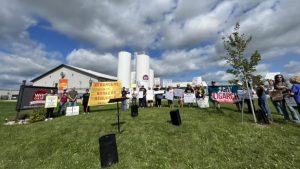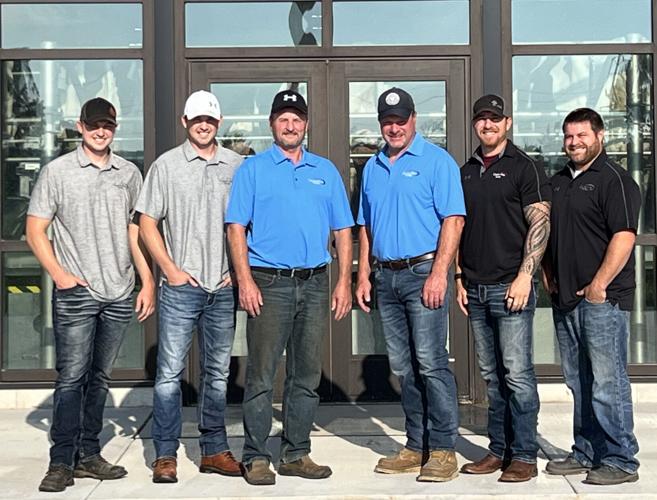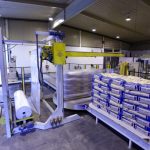The project should be completed this fall. The family’s goal is to milk 7,200 cows from an 8,000-cow herd spread across two sites.
“It puts us close to being one of the largest herds in the state,” he said.
Currently the rolling herd average is 29,980 pounds. The average-yearly butterfat is 4.15 percent and the yearly average for protein is 3.2 percent. The average somatic-cell count is 128 per milliliter.
When Mike and Tom Gerrits took over the farm in 1995 from their father, Budd Gerrits, the family was milking 378 cows. That was an increase from the 65 cows the family milked in the late 1960s.
Jim Barmore, a founding partner of GPS Dairy Consulting, has worked as a dairy consultant for Country Aire Farms for more than 24 years. He said the Gerrits are good cow people who care about their herd. They’re a role-model family farm at a time when multi-generational operations are overlooked as they grow bigger. Part of the family’s success is due to how proactive and professional the family has been in bringing the younger generation into the business.
“They’ve worked very hard at these generational transitions,” he said. “They didn’t just assume it was all going to happen by itself.”
Forage quality is another piece of their success, he said. They grow alfalfa, wheat and corn on 7,400 acres, feeding it back to the herd in a heavy-forage ration.
“That really lends itself well to better management of their feed costs,” Barmore said.
The Gerrits have thrived due to their management team, he said; the team includes numerous trusted advisers. When Mike and Tom Gerrits first envisioned implementing the buildout they turned to a general contractor specializing in agriculture – Keller in Kaukauna, Wisconsin. The company arranged for the Country Aire team to tour large dairy farms in California, New York and Arizona to understand available features and technology.
Joe Novy, agricultural-project manager at Keller, said it’s typical for dairy farmers to visit sites throughout Wisconsin and the United States to understand what more-extensive operations are doing.
Dozens of stakeholders then needed to collaborate on the Gerrits project, which could only accommodate so much.
“We put all the buildings in there we could while mapping it out for the future,” Novy said.
Environmental considerations were an important factor throughout the process. Country Aire is close to BC Organics, a biorefinery. BC Organics converts manure into renewable natural gas, recycled water and bedding for cattle. Country Aire pumps manure to its digestor. After the water is processed it’s returned to irrigate the fields. The arrangement will allow Country Aire to reduce its manure volume by 50 percent and have a negative carbon footprint.
The expansion has clued the family into how much technology has advanced. Tom Gerrits said the new rotary parlor uses an automated pre- and post-dip system, eliminating the need for two personnel. An activity-monitoring system tracks cows at the herd level. The system uses ear tags to monitor each cow’s rumination and send health alerts via a smartphone application; he can monitor cows from home. The app can see a cow become sick before a human can. The team can also run everything from fans to lights, pumps and sprinklers with their phones. He likes the technology because it aligns with the next generation.
“One of the biggest things we learned through the expansion is there’s more technology out there than people realize,” Mike Gerrits said. “Obviously it doesn’t come cheap but it helps. Tom and I know just enough technology that we’re dangerous. We gave the kids an opportunity to go research more to really play into their roles.”
You can now read the most important #news on #eDairyNews #Whatsapp channels!!!
🇺🇸 eDairy News INGLÊS: https://whatsapp.com/channel/0029VaKsjzGDTkJyIN6hcP1K

























